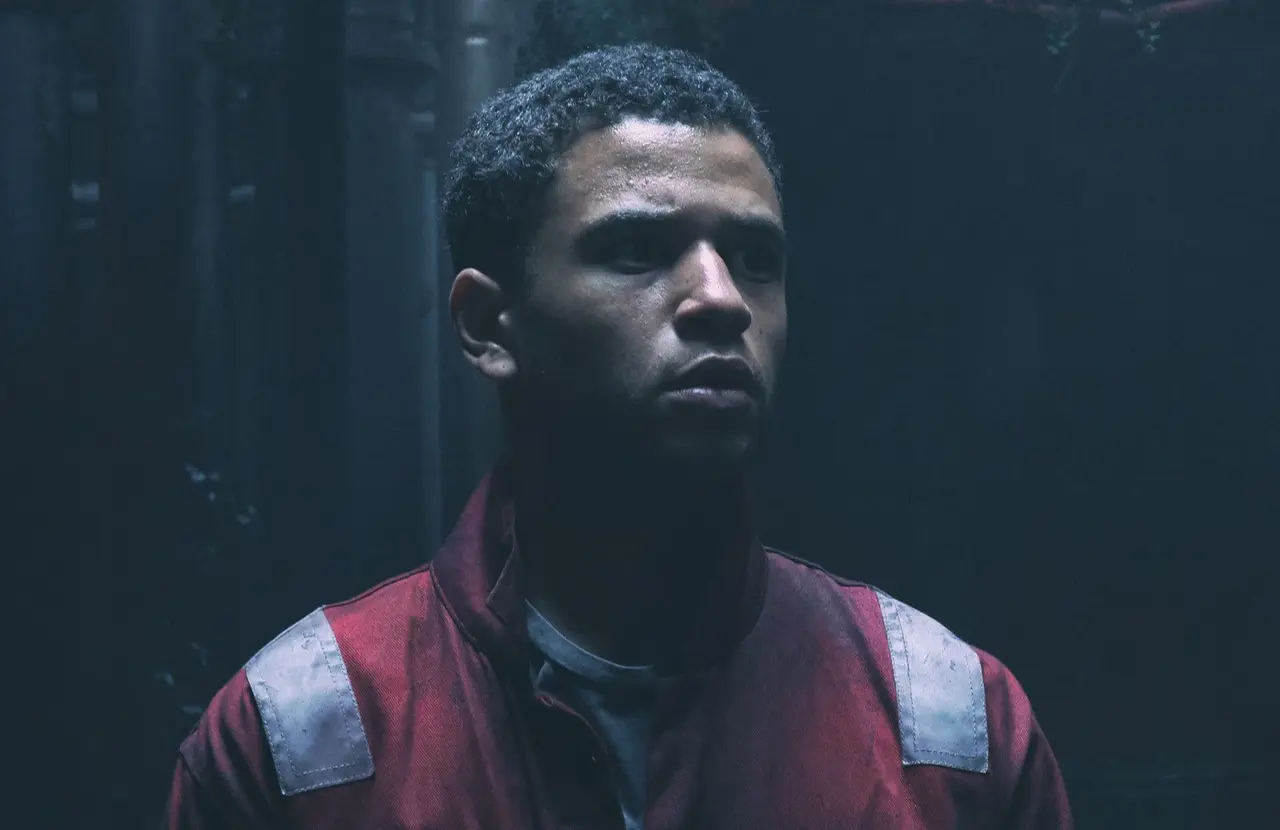Prime Video’s The Rig Conjures the Spookiness of John Carpenter’s The Thing
-
 Calvin Demba in The Rig (Photo: Prime Video)
Calvin Demba in The Rig (Photo: Prime Video)This will sound like a backward compliment, but it’s true: The Rig is effective because it isn’t very scary. At first, Prime Video’s six-episode series seems indistinguishable from several classic horror films. Just like The Thing, for instance, it’s about an isolated group of workers terrorized by a malicious parasite, only instead of researchers at an Antarctic station, they’re the crew of a deep sea oil rig. And just like in The Fog, they can’t get help because they’ve been enveloped by a dense (you guessed it) fog. However, even though the parasites cause several deaths in the three episodes screened for critics, and even though the fog hides some creepy secrets, there are no jump scares, ghoulish monsters, or other bloodcurdling tropes. Instead of behaving like a typical horror movie, the show uses interpersonal relationships and ecological symbolism to build an increasingly dreadful atmosphere.
There’s unrest on the rig even before the bad weather. Though they try to cover it up by playing video games and teasing each other over rounds of pool, the crew is feeling the claustrophobia of living on a floating hunk of bolts in the North Sea. Many of them jockey for a seat on a helicopter flight that will take a lucky few to the mainland, and this neatly establishes the story’s hierarchies. Rose (Emily Hampshire) is a scientist who represents the oil company, so she gets to fly out for meetings, guaranteed. Nobody much likes that, nor do they like that she’s not-so-secretly dating Fulmer (Martin Compston), one of her subordinates. Folks suspect he’ll get special treatment, and that especially aggravates brash young crew member Baz (Calvin Demba). He feels he’s owed a flight home, and his snotty behavior means crew leader Magnus (Iain Glenn) has to reprimand him, even though the kid is popular with the rest of the team.
It’s shrewd, using the promise of departure to teach us about these people. Since we already know how they behave when they’re eager to leave, we can anticipate their reactions when the supernatural disruptions trap everyone on board. There’s dark pleasure in waiting for Baz to make rash decisions (which he does), and there’s a welcome surprise when Rose actually tries to help, instead of flexing her rank to protect herself. One of the best scenes in the early episodes — a fistfight between a level-headed medic and a cranky old-timer who thinks he knows best — lands because both characters have been so convincingly written. (It helps that Rochenda Sandall has such badass energy as the doctor.)
Meanwhile, series creator David Macpherson is generous with information about the spooky parasites. By episode three, Rose learns they’re traveling in spores from an ancient layer of the earth that’s tied to a massive extinction event from thousands of years ago. She also realizes that if someone ingests too many of the spores, which travel freely through the air, then all the inorganic material will be pushed out of their bodies, including dental fillings and ink from tattoos. This not only creates some agreeably gross consequences for a few minor characters, but also sets up the idea that the parasites are on a quest for biological purity.
That ecological theme is foreshadowed from the beginning. The rig’s HR director reads a novel about the Kraken, another menace that rises from the bottom of the sea. There are lingering shots on posters in the break room that remind people not to throw trash in the water. And in several scenes, characters pointedly discuss how oil rigs are destroying the environment. One even says that human beings shouldn’t be surprised if the planet fights back.
Granted, heavy-handed speeches like that deserve an eye roll, but in general the show benefits from the rapid release of information about the eco threat. Instead of being coy about the killer substance in the fog, it builds tension by explicitly defining it as a natural phenomenon. There’s a bleak inevitability in watching the crew get attacked by the planet itself, and it’s arguably worse because the characters are so well written. For all their personality quirks, they’re not a match for nature, and there’s a queasy thrill in waiting for interesting people to realize their desperate little survival schemes may be futile. It makes The Rig almost meditative — an existential horror show about realizing one’s own smallness.
All six episodes of The Rig premiere January 6 on Prime Video. Join the discussion about the show in our forums.
Mark Blankenship has been writing about arts and culture for twenty years, with bylines in The New York Times, Variety, Vulture, Fortune, and many others. You can hear him on the pop music podcast Mark and Sarah Talk About Songs.
TOPICS: The Rig, Prime Video, Calvin Demba, David Macpherson, Emily Hampshire, Iain Glenn, John Carpenter, Martin Compston